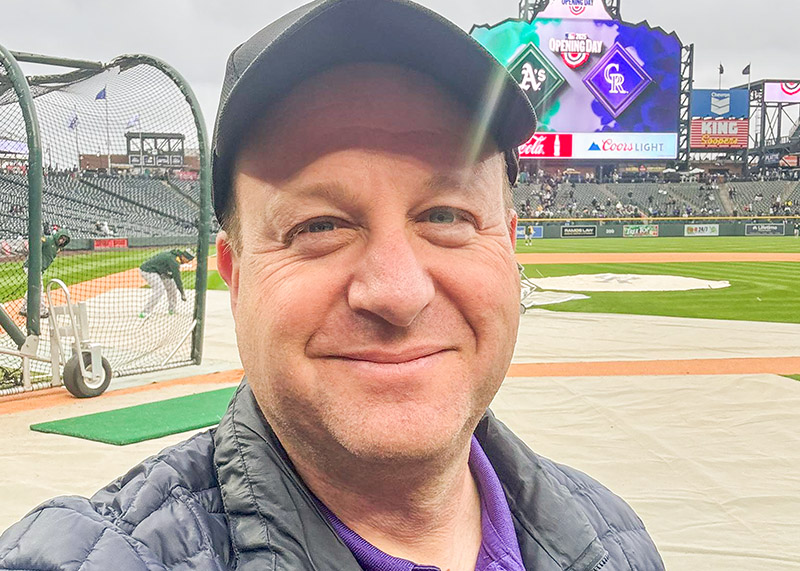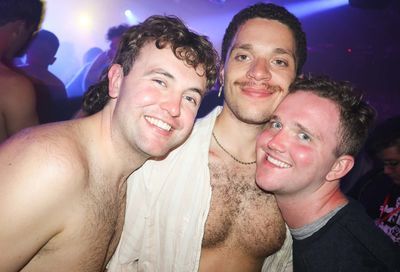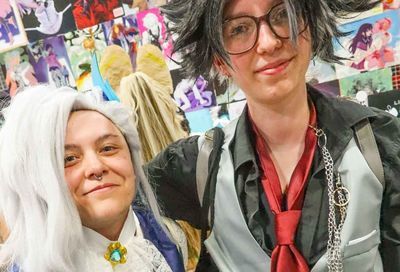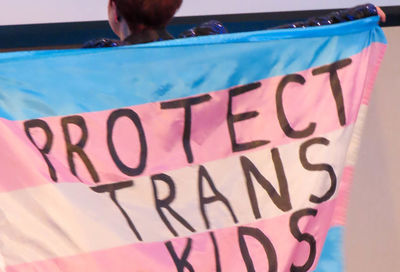Virginia civil celebrants say religious exemption bill unnecessary
Legislation that would allow civil celebrants to refuse to perform same-sex marriages is a bill in search of a problem

On Valentine’s Day, Gerylee Baron, a civil celebrant appointed by the Alexandria Circuit Court to perform weddings, married a couple celebrating their 29th anniversary.
“I’d say that in 80 to 90 percent of the same-sex ceremonies I’ve performed, the couple has generally been together for 20 or more years,” she says. She has also run into a number of same-sex couples who feel compelled to ask her if she’s comfortable with solemnizing a marriage between two men or two women.
“I always feel sad when same-sex couples have to ask if I’m willing to marry them,” she says.
Following the Supreme Court’s decision last year legalizing marriage equality, current Virginia law — at least in practice, if not officially in statute — allows any qualified couple, regardless of sexual orientation, to obtain a marriage license. Couples who obtain a license must then solemnize their marriage within 60 days. They may choose between a religious ceremony, where a priest or religious leader can obtain an authorization from the local circuit court to marry qualified couples, or a civil ceremony, where the couple is married by a court-appointed celebrant.
“Typically, if the clerk’s office has issued the license, I am open to performing the ceremony,” Baron says. “The only reason I get the parties’ names beforehand has nothing to do with whether they’re a same-sex couple or a heterosexual couple, it’s simply so that if someone calls me about the appointment, I can find it in my calendar. So as long as they come to me with a valid license, and they don’t make any statements that make it seem like it’s fraudulent in any way, I have no problems performing the ceremony, and I’m honored to do so.”
Yet a bill making its way through the Virginia General Assembly seeks to insert a religious exemption for people who are licensed to perform marriages. It provides that no clergy person or individual associated with a religious organization can ever be forced to solemnize a marriage with which they have a moral or religious objection. It also seeks to insulate individuals connected to religious organizations from the threat of any lawsuit if they refuse to provide goods, services or accommodations for a marriage that violates their beliefs.
The bill, which passed the closely-divided Virginia Senate on a narrow 20-19 vote, received pushback from Democrats for both the provision allowing discrimination in public accommodations and for a reference that the bill makes to Chapter 2 of the Code of Virginia, referring to “Marriage Generally.”
During the floor debate on the bill, its sponsor, Charles Carrico, Sr. (R-Galax) insisted that the purpose of his bill was only to guarantee that clergy and religious organizations would not be forced to violate their beliefs with respect to marriage. But opponents, including State Sen. Adam Ebbin (D-Alexandria), pointed out that the parts of the Code of Virginia that the bill references deal not only with religious clergy, but judges and court-appointed celebrants. As a result, opponents claim, the bill’s proposed exemptions are far too broad and could allow civil celebrants to also refuse solemnizing same-sex marriages.
Civil celebrants from various counties are puzzled by the idea that they might need any such religious exemption, and largely are in agreement that the bill is unnecessary. “From my experience speaking with other civil celebrants, at least in the Northern Virginia area, I have never heard somebody say, ‘I really wish they would build in this protection, because I’m not comfortable doing this,’” says Baron. “It’s not something that the folks up here are seeking.”
Others point out that the bill’s exemptions for clergy and faith-based organizations are already covered by the First Amendment’s guarantee of religious freedom.
“A Catholic priest would certainly be within their rights to say, ‘I’m not going to perform a Jewish wedding,’ or ‘I’m not going to marry a non-Catholic to a Catholic,’” says David Oblon, a civil celebrant for Arlington County. “I think the law is really targeting the civil celebrants. And I’m sure there must be some in Virginia who have religious opinions about certain types of marriage. And so my sense is, this bill is really targeted for them.”
If a bill allowing civil celebrants to recuse themselves from marriages based on their religious beliefs were to pass, it could provide inconvenience for groups such as same-sex couples, as it would likely narrow down the number of civil celebrants available, and may even lead to hurt feelings if the couple is turned away.
Joshua Kai, a celebrant from the Falls Church area authorized to perform civil marriages in Fairfax County and religious ceremonies in Arlington County, says that he personally would be unaffected by any exemption, because he wouldn’t reject a couple based on their sexual orientation. He also notes that a civil celebrant who is vocal about their opposition to a particular type of marriage would almost have to deliberately go out of their way to make some sort of grand gesture or statement.
“You’d have to be willing to make a serious point. Because if somebody doesn’t want to do it, they can say, ‘I’m sorry, my schedule’s busy that day,’ or ‘I’m sorry, something’s come up,’” says Kai. “It’s that easy to disengage from a request to perform a marriage. And they’re not going to penalize you for that, either. So you’d have to really want to make a point, to say to the couple, ‘I’m not willing to marry you because of religious beliefs.’”
Wendy Jones, a civil celebrant from Manassas, makes it a policy not to discriminate against any prospective couple.
“I don’t care about people’s sexual orientation, or their religion, or lack thereof,” she says. “It’s not for me to judge.”
Jones also notes that, from her experience working in the courts for 32 years, it appears that Christianity is the only religion that doesn’t distinguish between a civil marriage and a religious ceremony.
“The Muslims, the Buddhists — they look at the piece of paper the government requires as a secular thing,” Jones says. “They get married in their own religious ceremonies, but they come to me because they need civil benefits.
“The idea of the [civil celebrant] statute is that the judges in each circuit may appoint people to perform marriages, and these are other than ministers,” Jones adds. “If you’re on the list of civil celebrants in Prince William County, it’s assumed that you’re not discriminating against anybody, for any reason.”
For Amy Lynn Baska Sussman, a civil celebrant serving the Ashburn area of Loudoun County, the importance of having civil celebrants as an alternative to religious clergy hits close to home. Sussman, who is Catholic, and her husband, who is Jewish, specifically sought out a civil celebrant who would marry them, avoiding a potential objection by religious leaders who do not wish to perform interfaith marriages. She believes that the proposed exemption, if passed into law, could cause confusion for both civil celebrants and those seeking to marry.
“The reason that I became a civil celebrant was to ensure that all people were treated equally under the law,” Sussman says. “When a couple contacts me with a valid marriage license, the only thing that would prevent me from marrying them would be a scheduling conflict. I do no pre-screening. If they have a valid marriage license, it is my duty to marry them.”
Support Metro Weekly’s Journalism
These are challenging times for news organizations. And yet it’s crucial we stay active and provide vital resources and information to both our local readers and the world. So won’t you please take a moment and consider supporting Metro Weekly with a membership? For as little as $5 a month, you can help ensure Metro Weekly magazine and MetroWeekly.com remain free, viable resources as we provide the best, most diverse, culturally-resonant LGBTQ coverage in both the D.C. region and around the world. Memberships come with exclusive perks and discounts, your own personal digital delivery of each week’s magazine (and an archive), access to our Member's Lounge when it launches this fall, and exclusive members-only items like Metro Weekly Membership Mugs and Tote Bags! Check out all our membership levels here and please join us today!





















You must be logged in to post a comment.